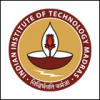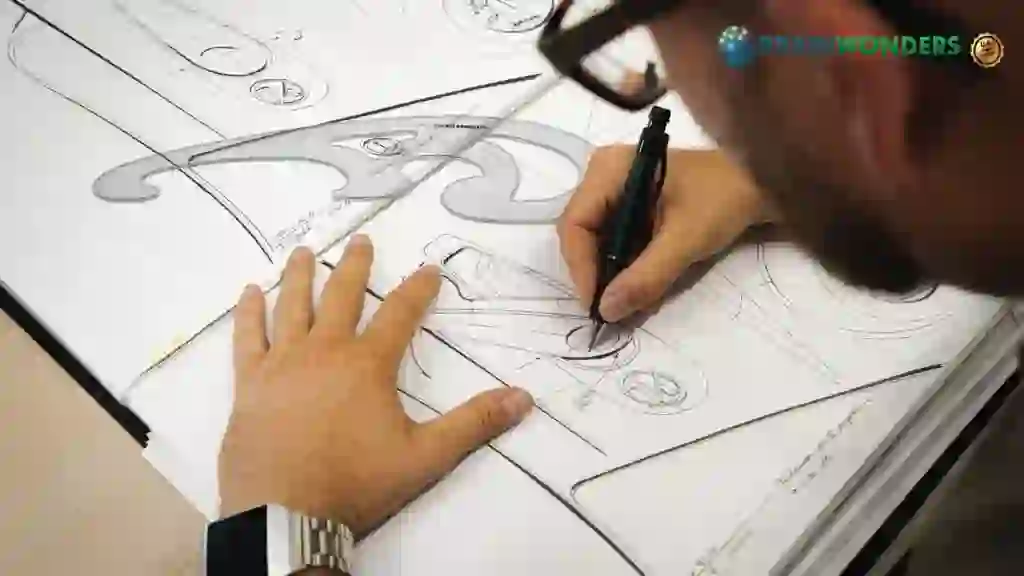How to become a Surveying Technician
Overview, Courses, Exam, Colleges, Pathways, Salary

Overview
Who is Surveying Technician ?
A Surveying Technician is a professional who assists surveyors in measuring, mapping, and analyzing land, water, and other natural features. They work in various industries, including construction, engineering, mining, and environmental management.
Surveying Technicians are crucial in collecting accurate data using specialized equipment such as total stations, GPS receivers, and laser scanners. They assist in setting up and operating surveying instruments, taking precise measurements, and recording data in the field. They also help prepare maps, charts, and reports using computer-aided design (CAD) software and Geographic Information Systems (GIS).
Additionally, Surveying Technicians may be involved in conducting research, analyzing data, and providing support for survey projects. They work closely with surveyors and other professionals to ensure surveying activities are conducted efficiently and accurately. Attention to detail, problem-solving skills, and proficiency in technical tools are essential for a Surveying Technician's success in this field.
Typical day at work
What does Surveying Technician do?
A Surveying Technician performs various tasks to support surveyors in their work. Some of the key responsibilities of a Surveying Technician include:
- Fieldwork: Surveying Technicians assist in conducting field surveys by setting up and operating surveying instruments, such as total stations and GPS receivers. They accurately measure distances, angles, elevations, and other relevant data.
- Data Collection: They collect data using surveying equipment and techniques, including measuring distances, angles, and elevations. They may also use laser scanners and other advanced tools to capture detailed information about the terrain and features being surveyed.
- Data Processing: Surveying Technicians process the collected data using computer software. They input the data into computer-aided design (CAD) programs or Geographic Information Systems (GIS) to create maps, charts, and digital models.
- Map Preparation: They assist in preparing maps, drawings, and other visual representations of surveyed areas. It includes incorporating data, symbols, and annotations to create accurate and detailed maps.
- Equipment Maintenance: Surveying Technicians are responsible for maintaining and calibrating surveying equipment to ensure accurate measurements. They may perform routine maintenance, troubleshoot equipment issues, and make adjustments as necessary.
- Project Support: They support surveyors and other professionals involved in survey projects. It involves conducting research, analyzing data, and coordinating project planning.
- Quality Control: Surveying Technicians help ensure the quality and accuracy of surveying data by reviewing and verifying measurements, calculations, and survey reports.
- Safety Compliance: They adhere to safety protocols and guidelines while working in the field to protect themselves and others. They may also assist in identifying potential hazards and implementing safety measures.
Abilities and Aptitude needed
What are the skills, abilities & aptitude needed to become Surveying Technician?
To become a Surveying Technician, several skills, abilities, and aptitudes are beneficial. These include:
- Knowledge of Surveying Techniques: A strong understanding of surveying principles, methods, and techniques is essential. It includes knowledge of measurement tools, data collection procedures, and coordinate systems.
- Proficiency in Surveying Instruments: Familiarity with surveying instruments such as total stations, GPS receivers, laser scanners, and levels is crucial. Competence in setting up, operating, and troubleshooting these instruments is necessary.
- Technical Skills: Proficiency in computer software, including CAD programs (e.g., AutoCAD) and GIS software (e.g., ArcGIS), is important for data processing, map creation, and analysis.
- Mathematical Skills: A solid foundation in mathematics is required for performing calculations, interpreting measurements, and solving geometric problems encountered in surveying.
- Attention to Detail: Being meticulous and having a keen eye for detail is crucial for accurate data collection, measurement, and record-keeping.
- Problem-solving Abilities: Surveying Technicians often encounter challenges or unexpected situations in the field. The ability to analyze problems, think critically, and develop practical solutions is important.
- Spatial Awareness: Having good spatial awareness and visualization skills aids in interpreting maps, understanding survey plans, and working with three-dimensional data.
- Communication Skills: Effective communication is vital as Surveying Technicians collaborate with surveyors, engineers, and other professionals. They must convey information, report findings, and work as a team.
- Physical Fitness: The role may involve working outdoors in various weather conditions and demanding terrain. Good physical fitness and stamina are beneficial for performing fieldwork efficiently.
- Time Management and Organization: Surveying Technicians often work on multiple projects simultaneously. Strong time management, organizational skills, and the ability to prioritize tasks are important for meeting deadlines and delivering quality work.
- Safety Awareness: Maintaining safety protocols and being aware of potential hazards in the field is crucial to ensure personal safety and the safety of others.
Pathways
How to become an Surveying Technician?
Entrance Exam
Entrance Exam for Surveying Technician ?
Courses
Which course I can pursue?
Best Colleges
Which are the best colleges to attend to become an Surveying Technician?
Industries
Which Industries are open for Surveying Technician?
Surveying Technicians can find employment in various industries that require land surveying and mapping services. Some of the industries that commonly employ Surveying Technicians include:
- Construction: Surveying Technicians are integral to construction projects, assisting in land measurement, stakeout, and verifying property boundaries.
- Engineering: Surveying Technicians support engineering projects by providing accurate data for design, site layout, and construction supervision.
- Land Development: In land development projects, Surveying Technicians help survey and analyze land parcels for residential, commercial, or industrial purposes.
- Mining and Extraction: Surveying Technicians play a vital role in mining operations, assisting in resource mapping, land evaluation, and monitoring environmental impacts.
- Environmental Management: They contribute to environmental assessment and management projects, providing spatial data on natural resources, habitats, and land use patterns.
- Geomatics and GIS: Surveying Technicians often work in geomatics firms and GIS departments, contributing to spatial data collection, analysis, and mapping projects.
- Government and Public Sector: Government agencies at various levels employ Surveying Technicians for land administration, infrastructure development, and urban planning projects.
- Transportation and Infrastructure: Surveying Technicians support transportation projects, including road construction, railway alignment, and airport development.
- Utility and Energy: Surveying Technicians are involved in utility infrastructure projects, such as laying pipelines, electrical distribution systems, and wind/solar energy site assessments.
- Real Estate and Property Management: They assist in property surveys, boundary determination, and land division for real estate transactions and property management.
- Surveying and Mapping Services: Technicians may work in specialized surveying and mapping firms, providing services to various clients across industries.
internship
Are there internships available for Surveying Technician?
Internships for Surveying Technicians are available in various industries. Internships provide valuable hands-on experience and allow individuals to apply their theoretical knowledge practically. Here are some avenues where internships for Surveying Technicians can be found:
- Engineering and Construction Firms: Many engineering and construction companies offer internships in their surveying departments. These internships provide exposure to surveying projects in infrastructure development and construction.
- Land Development Companies: Internships with land development companies that focus on residential, commercial, or industrial projects may be available. These internships can provide experience surveying land parcels, creating site plans, and assisting in land subdivision processes.
- Government Agencies: Local, state, or federal agencies often offer internships in surveying or land management departments. These internships can provide exposure to various surveying projects and land administration processes.
- Surveying and Mapping Firms: Specialized surveying and mapping firms may offer internships to aspiring Surveying Technicians. These internships provide exposure to various surveying projects and technologies, including GIS and remote sensing.
- Geomatics and GIS Companies: Internships may be available in geomatics and GIS companies specializing in spatial data collection, analysis, and mapping. These internships can offer experience in advanced surveying technologies and data processing techniques.
- Utility and Energy Companies: Internships in utility and energy companies involved in infrastructure development, such as pipelines or renewable energy projects, may offer opportunities to work with Surveying Technicians.
- Environmental and Natural Resource Management Organizations: Internships in environmental management organizations or agencies involved in natural resource management can provide exposure to surveying techniques related to ecological studies, land conservation, and resource assessment.
Career outlook
What does the future look like for Surveying Technician?
The future outlook for Surveying Technicians appears promising. As infrastructure development continues and land surveying remains a critical component of construction and engineering projects, the demand for skilled Surveying Technicians is expected to remain steady. Additionally, the increasing use of advanced technologies such as drones, laser scanners, and GIS software in surveying processes will likely enhance data collection and analysis efficiency and accuracy. This shift towards technology-driven surveying methods may create new opportunities for Surveying Technicians with expertise in these tools. Furthermore, the growing emphasis on sustainable development and environmental management is expected to create demand for surveying services in fields like renewable energy, land conservation, and natural resource management. With the right skills and adaptability to emerging technologies, Surveying Technicians can expect a positive career outlook with opportunities for growth and specialization.







